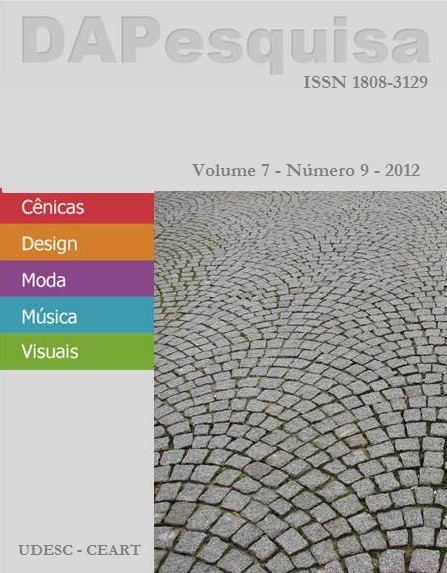Carmen Miranda e nacionalismo na década de 1930
DOI:
https://doi.org/10.5965/1808312907092012380Palavras-chave:
Carmen Miranda, samba, identidade nacional, nacionalismoResumo
Na década de 1930, a música foi um dos grandes vetores na articulação de uma identidade nacional e, nesse universo, Carmen Miranda consagrou-se como cantora de sucesso, especialmente pela participação em rádio. Assim, o objetivo deste trabalho é estabelecer algumas relações entre Carmen Miranda, sua imagem e canções interpretadas por ela, e um projeto político de nação, ligado à rádio e à canção popular por meio de um estudo histórico. Dentro de um contexto de exacerbação de nacionalismos, Carmen passou a integrar um discurso de identidade nacional, contribuiu com o “branqueamento” do samba e legitimou sua ascensão e consagração como canção nacional.
Downloads
Downloads
Publicado
Como Citar
Edição
Seção
Licença
Copyright (c) 2018 Káritha Bernardo de Macedo

Este trabalho está licenciado sob uma licença Creative Commons Attribution 4.0 International License.
Autores que publicam nesta revista concordam com os seguintes termos:
Autores mantém os direitos autorais e concedem à revista o direito de primeira publicação, com o trabalho simultaneamente licenciado sob a Licença Creative Commons Atribuição 4.0 Internacional, a qual permite que outros distribuam, remixem, adaptem e criem a partir do seu trabalho, mesmo para fins comerciais, desde que lhe atribuam o devido crédito pela criação original, reconhecendo a autoria e publicação inicial nesta revista.
A DAPesquisa, segue as recomendações do movimento de Acesso Aberto, proporciona acesso público a todo seu conteúdo, a partir do princípio de que tornar gratuito o acesso a pesquisas gera um maior intercâmbio global de conhecimento.
Plágio, em todas as suas formas, constitui um comportamento antiético de publicação e é inaceitável. A revista DAPesquisa utiliza o software iThenticate de controle de similaridade.





